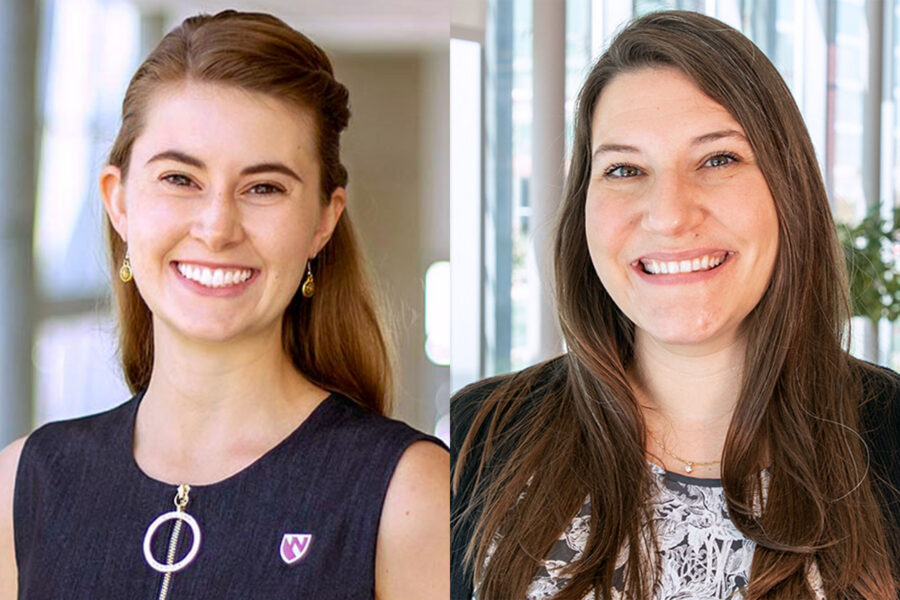Two UNMC researchers were awarded a one-year grant from the National Institutes of Health to address obesity as a risk factor for cancer.
The grant, which is just shy of $100,000, was awarded to Mariah Jackson, PhD, assistant professor in the UNMC College of Allied Health Professions, and Dana Verhoeven, PhD, assistant professor in the UNMC College of Public Health and member of the National Cancer Institute-designated Fred & Pamela Buffett Cancer Center.
The research builds upon an existing Fred & Pamela Buffett Cancer Center support grant overseen by cancer center director Joann Sweasy, PhD, that looks at how to reduce the cancer burden across Nebraska, Dr. Jackson said. The Fred & Pamela Buffett Cancer Center is Nebraska’s only NCI-designated cancer center and one of only 73 in the country.
“We know obesity is linked to at least 13 types of cancer, including colorectal, breast and pancreatic cancers,” Dr. Jackson said. “Further, rural areas in Nebraska face unique challenges that make obesity and its associated cancer risks even more pronounced.”
Researchers will use the data from the Behavioral Risk Factor Surveillance System to examine the prevalence of obesity and its behavioral determinants, such as diet, alcohol consumption and physical activity patterns, across Nebraska.
They also are partnering with Nebraska Extension to identify and engage community partners across different sectors, such as academia, health care and public health.
They will host listening sessions and focus groups in different communities across the state to learn about barriers to combatting obesity.
Researchers will take a whole-systems approach to explore and integrate what’s already being done in relation to obesity prevention and nutrition education.
“We hope to bridge some of these silos and learn how we can link efforts to improve physical activity or nutrition across different communities and partners to reduce obesity and the cancer burden in Nebraska,” Dr. Verhoeven said.
Researchers will meet people where they are, knowing obesity initiatives may differ by location. This holistic process will culminate in a comprehensive needs assessment and meeting report. The goal is to identify opportunities and barriers for implementing an approach to obesity in the community to inform future interventions for cancer risk reduction.
“We have a diverse array of communities across Nebraska — urban, rural and frontier. We want to understand all aspects of what would help people where they are,” Dr. Jackson said. “This really could help unify efforts across the state. We’re bringing people together to help shape targeted interventions. This is a foundational step to creating better solutions in the future.”

Congratulations on the receiving the grant! I know your research is important and now it’s expanded all across the State. Exciting!